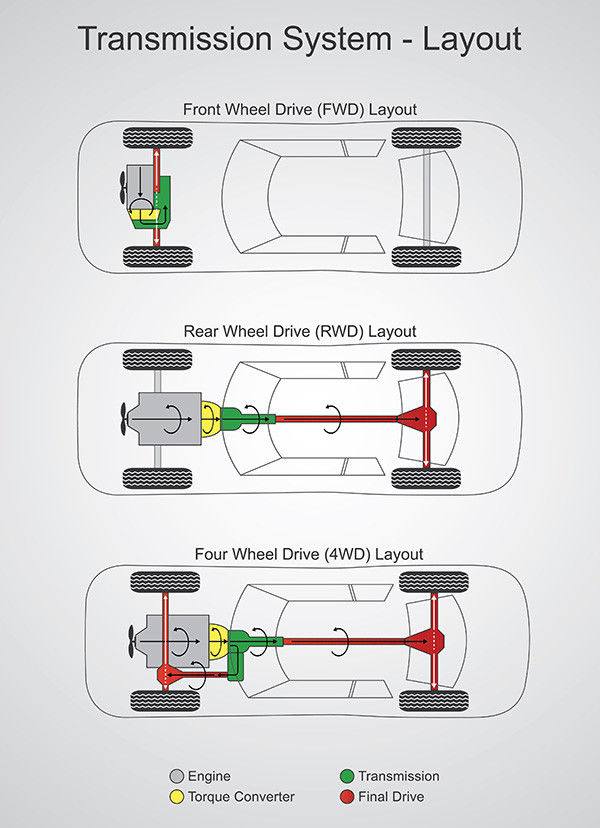
When it comes to choosing a vehicle, one of the critical decisions you will make is selecting between rear-wheel drive (RWD) and front-wheel drive (FWD). This choice significantly impacts your driving experience, vehicle performance, and overall satisfaction. But how do you know which one is right for you? Let's explore the pros and cons of both drivetrains to help you make an informed decision.
Rear-Wheel Drive
Rear-wheel drive has been the standard in the automotive industry for many years, particularly in performance and luxury vehicles. The engine sends power to the rear wheels, which pushes the car forward. This setup offers several benefits, especially for those who prioritize driving dynamics.
Pros of Rear-Wheel Drive:
Better Handling and Balance
With power distributed to the rear wheels, RWD vehicles typically offer better weight distribution and handling. This is particularly noticeable in high-performance cars, where precise control and stability are essential.
Improved Acceleration
RWD cars tend to accelerate more efficiently, as the weight transfer to the rear during acceleration provides better traction.
Durability
RWD systems are often more robust and capable of handling more power, making them a popular choice for sports cars and trucks.
Cons of Rear-Wheel Drive
Poor Traction in Adverse Conditions: RWD vehicles can struggle in slippery conditions like rain or snow because the rear wheels have less weight over them, reducing traction.
Increased Maintenance Costs
RWD systems are generally more complex and can be more expensive to maintain and repair compared to FWD systems.
Less Interior Space
The design of RWD vehicles often means a larger drivetrain tunnel, which can reduce interior space and comfort.
Front-Wheel Drive
Front-wheel drive, where the engine powers the front wheels, has become increasingly popular, especially in compact and economy cars. This configuration offers distinct advantages, particularly in everyday driving conditions and for those prioritizing efficiency and practicality.
Pros of Front-Wheel Drive:
Better Traction in Poor Conditions
FWD vehicles tend to perform better in wet or snowy conditions because the engine's weight is over the front wheels, enhancing traction.
More Efficient Use of Space
Without the need for a drivetrain tunnel, FWD cars often offer more interior space and a flatter floor, improving passenger comfort and cargo capacity.
Cost-Effective
FWD systems are generally simpler, making them cheaper to produce, maintain, and repair. This often translates to lower overall costs for the consumer.
Cons of Front-Wheel Drive:
Understeer Tendency
FWD vehicles can be prone to understeer, where the car continues to move straight ahead despite steering input. This can make high-speed cornering less precise.
Less Balanced Weight Distribution
With more weight at the front, FWD cars can feel less balanced, particularly during aggressive driving.
Limited Performance Potential
FWD systems can struggle to handle high power outputs, making them less suitable for high-performance applications.
Making the Right Choice for You
When deciding between rear-wheel drive and front-wheel drive, consider your driving environment, needs, and preferences. If you live in an area with harsh winters or frequently drive in wet conditions, a front-wheel-drive vehicle might be the better choice for its superior traction. On the other hand, if you crave performance and enjoy spirited driving, a rear-wheel-drive car will likely offer the dynamic experience you seek.
Think about the type of vehicle you need. For example, if you're looking for a sports car or a truck, RWD might be more suitable due to its handling and power capabilities. Conversely, FWD's efficiency and interior space benefits will be more appealing if you need a practical family car or a commuter vehicle.
Looking for the best performance or superior traction? Ripley's Total Car Care has you covered. Come in today for expert maintenance and repairs regardless of the drivetrain.